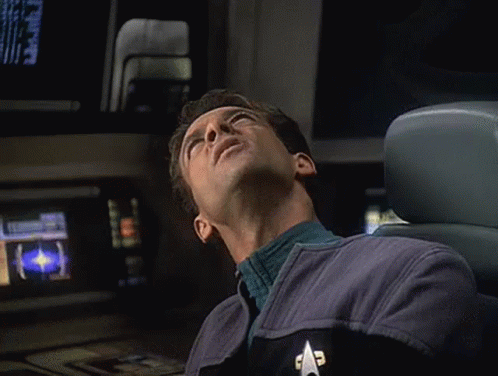Ovinomancer
No flips for you!
To try and rescue this, let's look at Star Trek. Is the point of an episode of Star Trek to revel in a particular bit of setting lore? Is the point to find out how transporters work, like really work? Is it even to enjoy the tropes and genre of Sci-Fi? I'd say no. I say this because all of these things are often immediately tossed with weak justifications for whatever story they're telling (and often cause continuity problems if examined). The story is the main point in any Star Trek episode, and it's never about the technology, or space, or anything like that -- it's about some member of the crew undergoing some personal crisis. Why? Because Star Trek is a soap-opera in space. The setting is a backdrop -- it's the grease that allows the quick changing of location and problem week to week. It doesn't make sense very often, and it's never called on to resolve the conflict in question -- it's entirely subordinate to that and written/rewritten as needed for the story.To be completely honest, I have to say that at this point I have utterly lost the plot of what you're arguing about.
Yes. You can put Shoggoths* in Apoc World, and you can put Klingons in Glorantha. Neither is a thing the games as written instructs or expects you to do, but the rules won't break down in either case. So what? What's your point?
Again? So? You have just demonstrated that any form of fiction creation by necessity contains several different elements and purposes. Like Star Trek is a show about future space explorers that make tough moral choices regarding hairy situations that often have some allegorical significance. We don't need to decide whether it 'really' is about the setting or the characters or the message, as they are all intertwined into one gestalt.
(*That being said, inserting mythos into other settings is such a common thing to do, that it might not necessarily even come across as particularly jarring in a crowd that's used to that. But that's besides the point.)
So, the setting is totally not the point of the Star Trek show. This is the same sense that setting is not the point of a Story Now game. It's there to provide grease for play, and to be subservient to the play.



